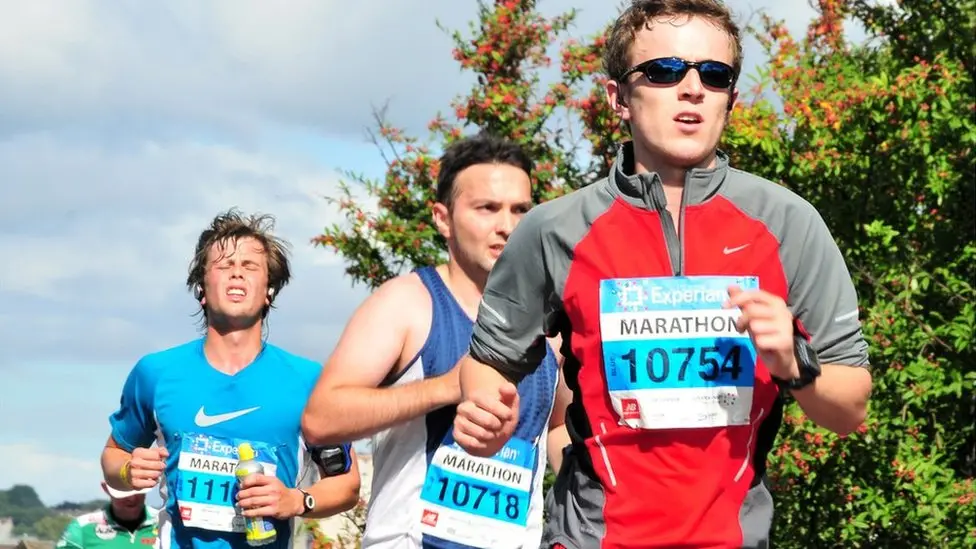Half marathon runner hails 'pioneering' treatment
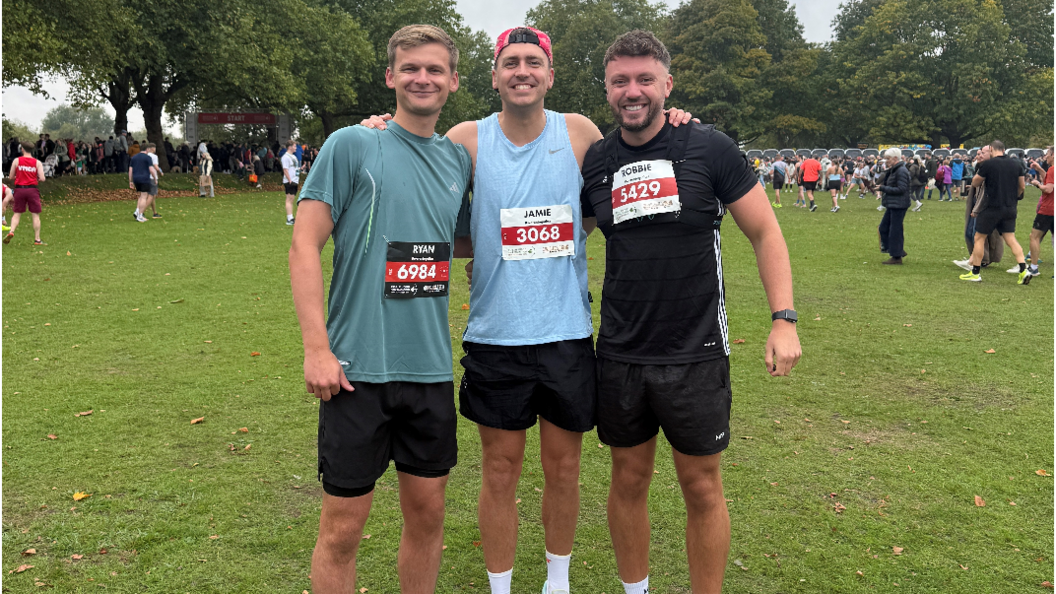
Jamie Burgess (centre) was treated by medical staff after crossing the finish line
- Published
A runner who collapsed during the Robin Hood Half Marathon has praised medical staff who used a "pioneering" treatment to help him recover from heat exertion.
A record number of entrants took part in runs for the event last month, with organisers saying more than 14,000 participants signed up for the half and mini marathons.
After becoming unwell, Jamie Burgess, from Market Harborough in Leicestershire, was treated with a polar life pod bag, in which ice and water are poured into a sleeping bag-like device to cool down core body temperatures more quickly.
He thanked the East Midlands Immediate Care Scheme (EMICS) for quickly coming to his aid, adding he now feels "remarkably well".
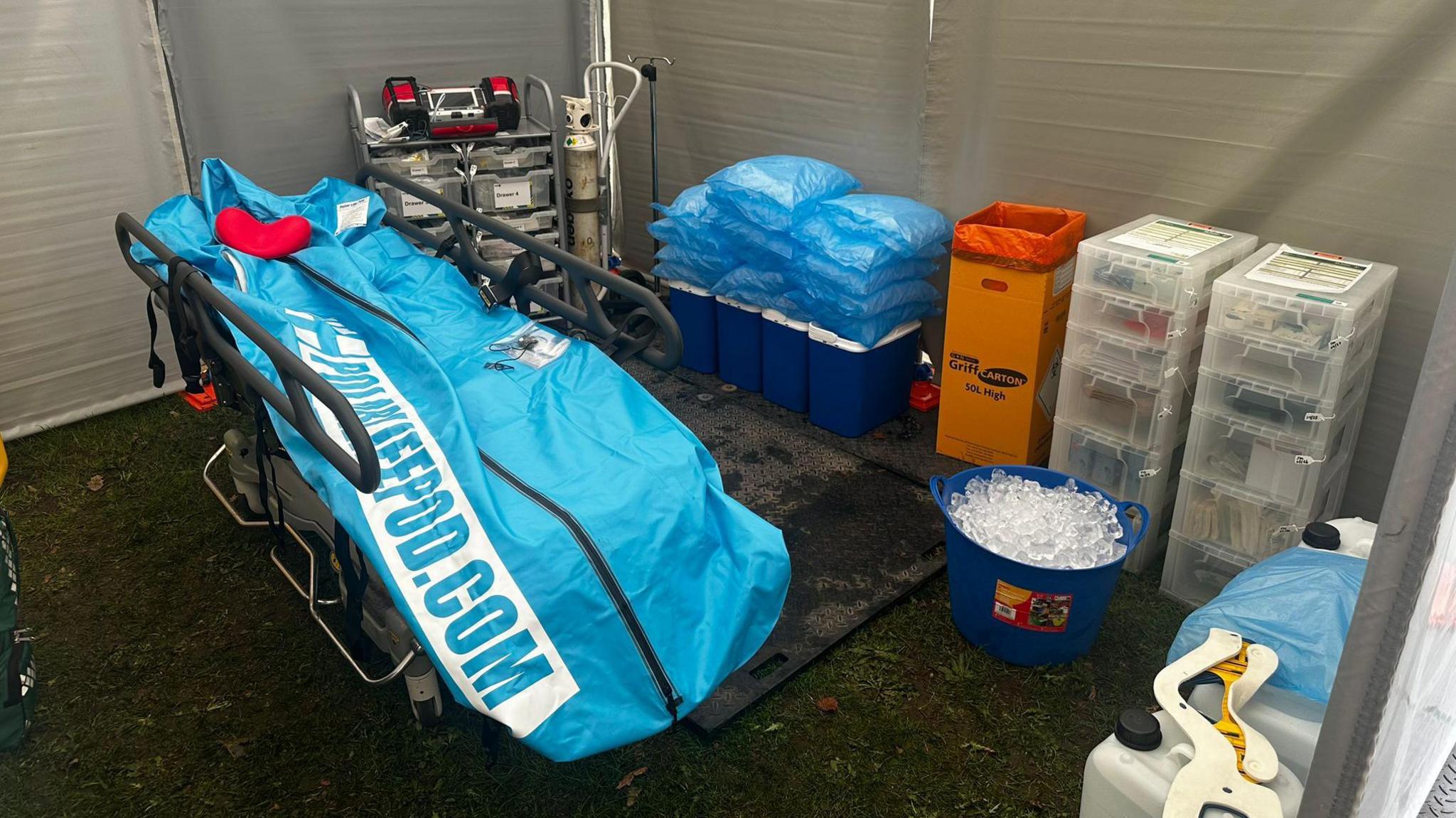
The bag was filled with water and ice before being used to treat people who were suffering from heatstroke
Mr Burgess said he was running in the half marathon with a couple of friends, but after setting out as he normally would, he got into difficulties with about 7km (4.35 miles) left to run.
"I knew I was in a bit of pain, but thought 'I'm going to run through, I'm on for a good time'," he said.
"I might have run myself a bit too hard - I don't remember the last 2-3km of the race, [but] by all accounts I made it to be able to see the finish line before collapsing."
"A couple of fellow runners managed to get me across the line, so I do have an official finish time, but I don't have any recollection," he added.
After losing consciousness, Mr Burgess said the next thing he remembered was "waking up in the medical tent, surrounded by eight, nine, 10 faces looking at me".
His body temperature had reached "an alarmingly high" 42.3C (108 F), which he said the doctors told him was "incredibly dangerous".
However, after he was placed in the bag, they managed to rapidly reduce the temperature.
He was discharged from medical care on Monday, the day after the event, and returned to work on Tuesday.
It was a "remarkable recovery" he attributed to the speedy treatment he received.
"By the sounds of it, without having that immediate care on the finish line [and] in the medical tent, it sounds like my condition could have been a lot worse," he said.
"I could have had lasting damage, which, thankfully, I have none of, so I owe quite a bit to that ground-breaking treatment they were able to provide."
'Gold-standard care'
Tim Baker, a doctor who has volunteered to help runners at the Robin Hood Marathon for a number of years, said the event had gone "very well indeed", but said a small number of people had overheated while taking part, two of whom were "severely affected".
"What we know about endurance events is that whilst it's very healthy to get out there and exercise and to run, some people will have a bad day, for whatever reason," he said.
"In previous years we've just had to do the very best we can with shading, spraying, fanning and using ice packs in all sorts of places trying to cool somebody down, which is helpful.
"What we know to be true, with research published both in and outside of the military experience, is that the best way of cooling someone's core temperature down and helping them get better quickly is immersion in ice-cold water.
"This weekend, for the very first time, we were able to provide that as a higher level of on-scene, gold-standard medical care."
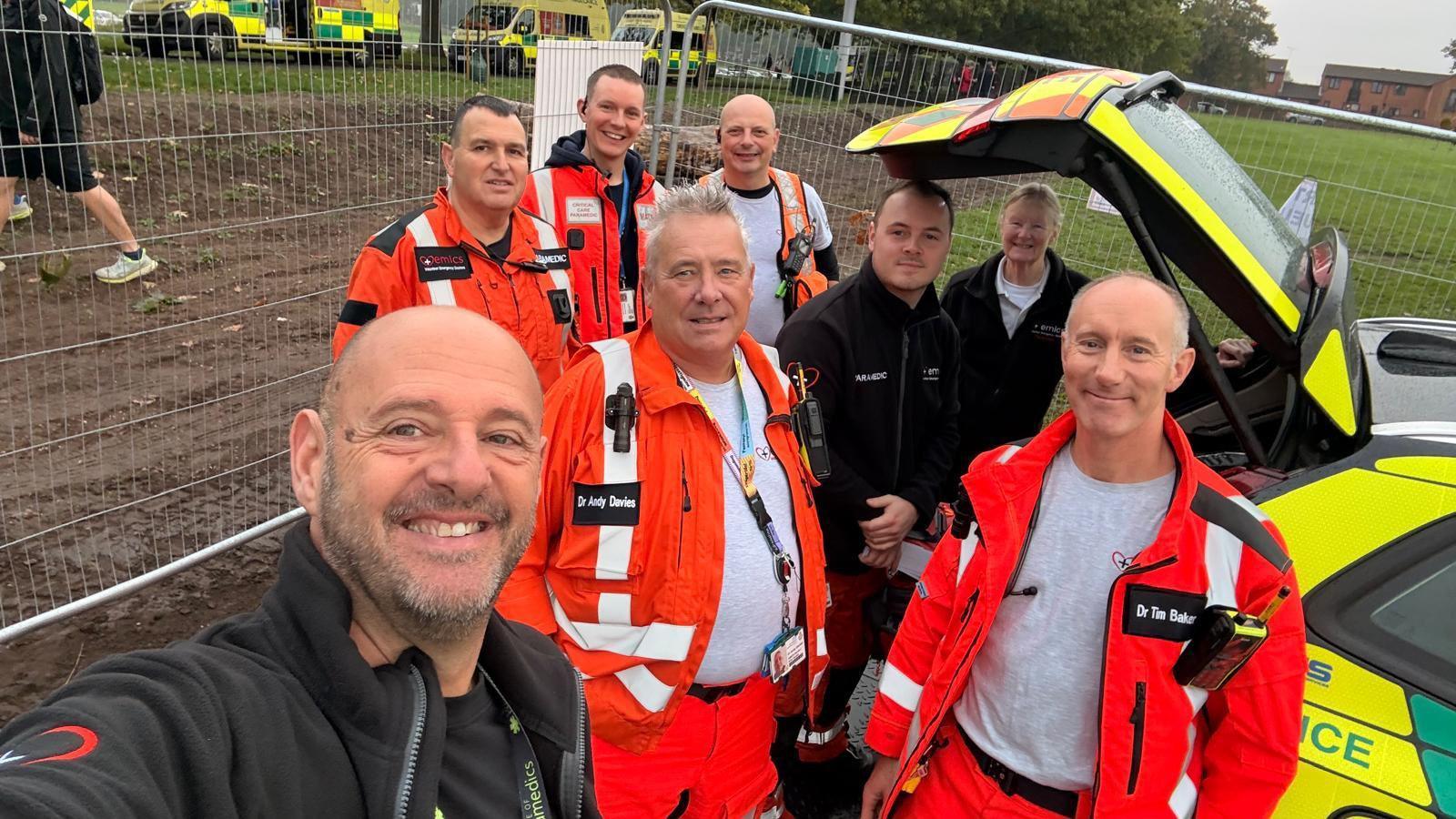
Tim Baker (right) said the bag proved to be a "highly effective" treatment
Dr Baker, who works with EMICS and St John Ambulance during the marathon, said treatment with the bag was an improvement on previous procedures, and was "highly effective" in bringing down the internal temperatures of patients.
"It changed the outcome here, because we saw within five to 10 minutes two critically-ill people, rather than get worse and worse, got better and better in front of our eyes," he said.
"With current treatments unable to cool someone's core temperature that quickly, we do not see people recovering often for hours or days later."
Dr Baker said while most people did not suffer serious consequences when overheating during races, speedy responses from medical teams were still important.
"Potentially, heatstroke can cause multi-organ failure, and in some cases can be fatal, so rapid action is of paramount importance," he said.
"This was a big success for a pretty pioneering, revolutionary treatment."
Additional reporting by David Pittam
Get in touch
Tell us which stories we should cover in Nottingham
Follow BBC Nottingham on Facebook, external, on X, external, or on Instagram, external. Send your story ideas to eastmidsnews@bbc.co.uk, external or via WhatsApp, external on 0808 100 2210.
Related topics
- Published28 September
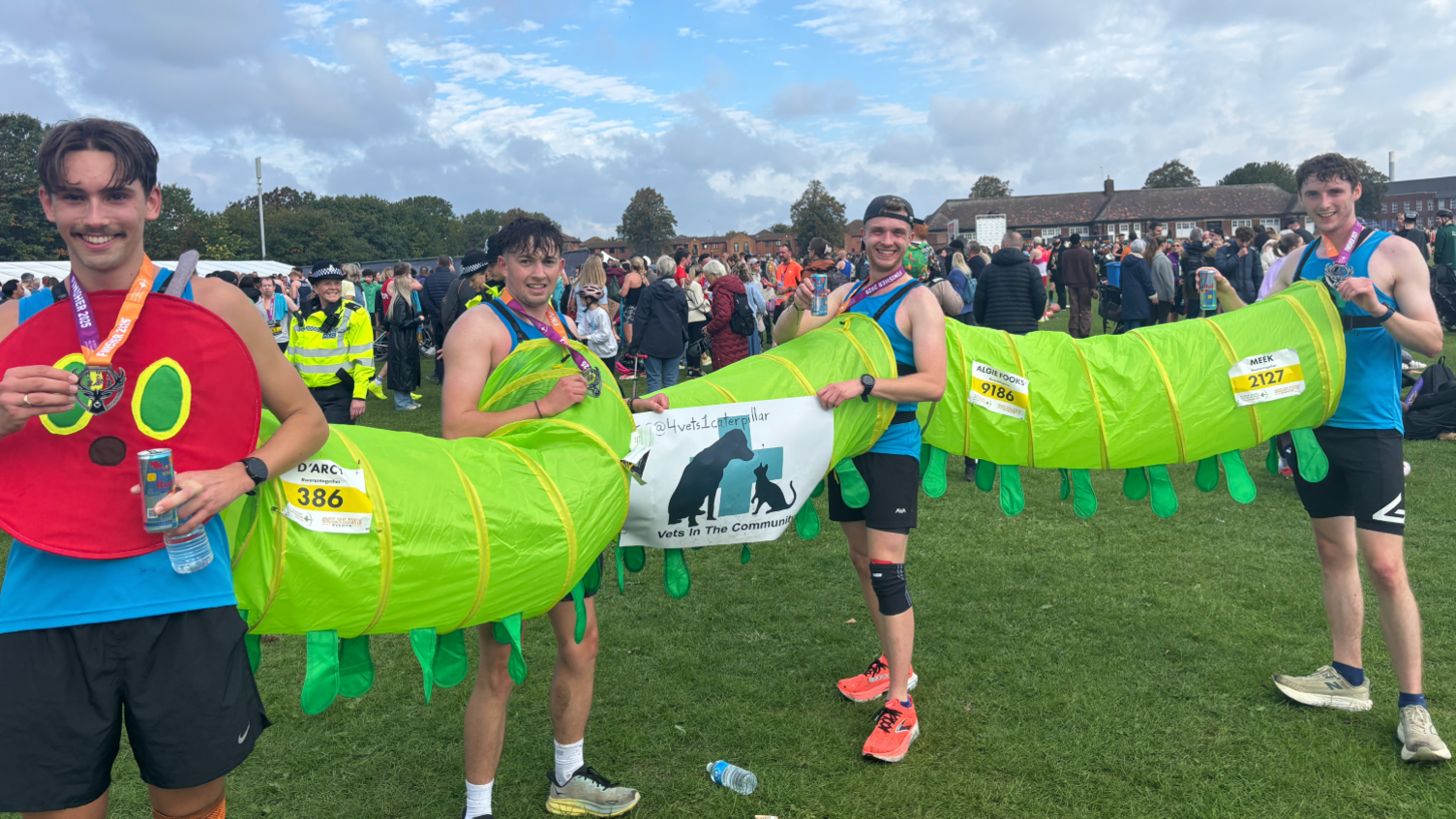
- Published26 September
